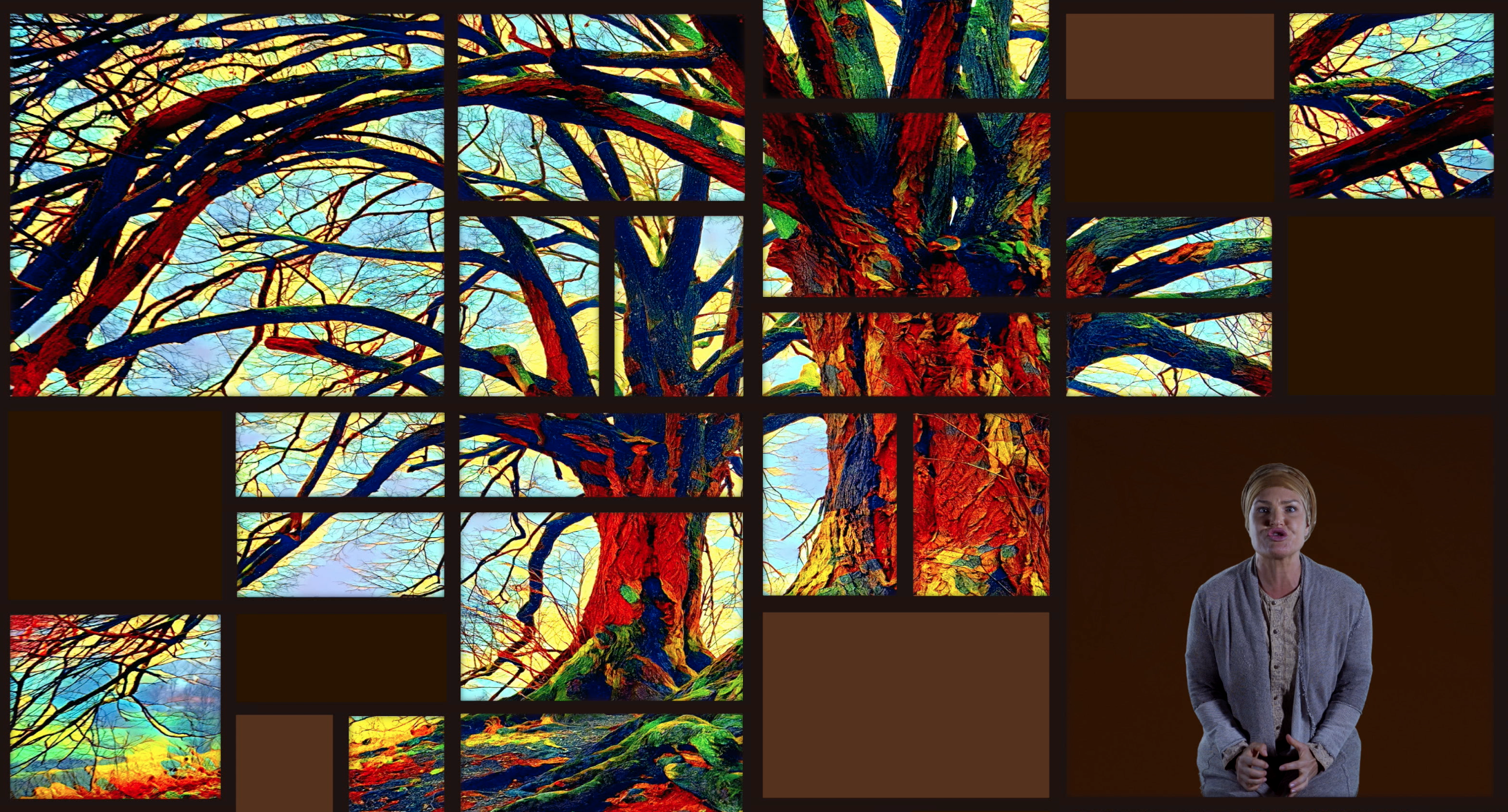Learn More – Menotti’s Amahl and The Night Visitors
Menotti’s classic about the tale of the three magi – brought to life on HOT Digital.

Now Playing – Menotti’s Amahl and The Night Visitors! On-Demand for $25.
Starring Jayne Lau (Amahl), Leslie Goldman (Mother), Kenneth Kellogg (Balthazar), Chung-Wai Soong (Melchior), Adam Flowers (Kaspar), Falefia Jr. Brandon Fuamatu (The Page) with Coach & Accompanist Noah Lindquist and directed by HOT Artistic Advisor Jamie Offenbach.
Also featuring members of the HOT Chorus, you don’t want to miss it!
Click here to watch Quick Takes with Dr. Lynne Johnson!
The Genesis of Amahl and the Night Visitors
By Gian Carlo Menotti
This is an opera for children because it tries to recapture my own childhood. You see, when I was a child I lived in Italy, and in Italy we have no Santa Claus. I suppose that Santa Claus is much too busy with American children to be able to handle Italian children as well! Our gifts were brought to us by the Three Kings, instead.
I actually never met the Three Kings—it didn’t matter how hard my little brother and I tried to keep awake at night to catch a glimpse of the Three Royal Visitors, we would always fall asleep just before they arrived. But I do remember hearing them. I remember the weird cadence of their song in the dark distance; I remember the brittle sound of the camel’s hooves crushing the frozen snow; and I remember the mysterious tingling of their silver bridles.
My favorite king was King Melchior, because he was the oldest and had a long white beard. My brother’s favorite was King Kaspar. He insisted that this king was a little crazy and quite deaf. I don’t know why he was so positive about his being deaf. I suspect it was because dear King Kaspar never brought him all the gifts he requested. He was also rather puzzled by the fact that King Kaspar carried the myrrh, which appeared to him as a rather eccentric gift, for he never quite understood what the word meant.
To these Three Kings I mainly owe the happy Christmas seasons of my childhood and I should have remained very grateful to them. Instead, I came to America and soon forgot all about them for here at Christmas time one sees so many Santa Clauses scattered all over town. Then there is the big Christmas tree in Rockefeller Plaza, the elaborate toy windows on Fifth Avenue, the one hundred voice choir in Grand Central Station, the innumerable Christmas carols on radio and television and all these things made me forget the three dear old Kings of my own childhood.
But in 1951 I found myself in serious difficulty. I had been commissioned by the National Broadcasting Company to write an opera for television, with Christmas as a deadline, and I simply didn’t have one idea in my head. One November afternoon as I was walking rather gloomily through the rooms of the Metropolitan Museum, I chanced to stop in front of the Adoration of the Kings by Hieronymus Bosch. And as I was looking at it, suddenly I heard again, coming from the distant blue hills, the weird song of the Three Kings. I then realized they had come back to me and had brought me a gift.
I am often asked how I went about writing an opera for television, and what are the specific problems that I had to face in planning a work for such a medium. I must confess that in writing “Amahl and the Night Visitors” I hardly thought of television at all. As a matter of fact, all my operas are originally conceived for an ideal stage which has no equivalent in reality, and I believe that such is the case with most dramatic authors.
For the creator, the moment of nightmare in a dramatic work occurs when he finally sees his idea frozen in the realistic frame of the theatre. Something infinitely precious to the author is altered when the original poetic impulse has been translated into literal and visual terms, no matter how excellent they may be. When realized in the theatre, the work becomes suddenly a disassociated and detached entity in front of which he finds himself almost a stranger. That mysterious moment of vision has been made wonderfully and fatally concrete.
I’m sure that to very young people the stage must appear histrionically primitive compared to the cinema and television. But to me the stage still comes the closest to the “ideal theatre” perhaps because of its greater use of symbolism, imposed by its own limitations, demands of the audience a wider range of imagination and a deeper poetic sense. To me, cinema, television, and radio seem rather pale substitutes for the magic of the stage. This is the reason why, in writing “Amahl and the Night Visitors” I intentionally disregarded the mobility of the screen and limited myself to the symbolic simplicity of the stage.
The spectator who takes no journey and has no appointed time or seat but, carelessly clad, sits casually on the first available chair in his living room, and who, knitting or perhaps playing with the kitten, “turns on what he takes to be a theatrical performance, will never know the emotion of a real theatrical experience. The theatre must be a choice—a carefully made appointment. Machiavelli, even after he retired to the county, used to don his most elaborate and richest clothes before setting to work on his books. Symbolically, at least, every artist does the same. He addresses you in utter dignity—whether his message be comic or tragic—and to partake in his experience, you must share this seriousness and receive his message wearing your “Sunday clothes”.

Synopsis
The scene opens on Amahl, a boy who is lame but who has a kind heart, a vivid imagination and often tells tall tales. He is sitting outside when his Mother calls for him (Amahl! Amahl!). After much persuasion, he enters the house but when he tells her that there is an amazing star “as big as a window” outside, over their roof (O Mother You Should Go Outside), his Mother does not believe him (Stop Bothering Me!). She cries for the plight of herself and her son. Since they have so little, she fears they may have to resort to becoming beggars (Don’t Cry Mother Dear).
After bedtime, (From Far Away We Come) there is a knock at the door and Amahl’s Mother tells him to go see who it is (Amahl…Yes Mother!). He is amazed when he sees three splendid and regally dressed Kings with their entourage. They tell the Mother and Amahl that they are on a long journey following a star and that they would like to rest at the house. The Mother invites them inside (Come In!). Amahl’s Mother leaves for a moment to fetch something from out of the house and Amahl seizes the opportunity to speak with the kings (Are You A Real King?; This is My Box). The Mother returns (Amahl, I Told You Not To Be A Nuisance!) and learns from the kings about the wonderous child they are seeking (Have You Seen a Child?).
Later, when the Kings are resting, the Mother, sickened at the thought of her child having nothing, attempts to steal some of the gold that the Kings have brought on their journey (All That Gold). However, she is thwarted by the Kings’ page. When Amahl wakes to find his Mother in a struggle with the Page, he attacks the Page in an attempt to save his Mother. Upon seeing Amahl’s brave defense of his Mother and realizing her selfless motives, King Melchior says she may keep the gold (Oh, Woman, You May Keep The Gold), as the child they are traveling to see will not need earthly wealth to build his kingdom.
The Mother is touched by the words of the King. She too has searched long for such a promise of hope that this child represents (For Such A Child). She wishes to send a gift but has nothing to give. Amahl has nothing to give except for his crutch, and so he offers it. As he steps forward to give the crutch to the King, he is miraculously healed (Look, Mother, I Can Dance!) He asks his Mother if he can travel with the Kings to bring his gift to this child himself. The Mother agrees (What To Do With Your Crutch?) and the Kings leave with Amahl. They continue their journey to bring all their gifts to the child in gratefulness, following the star.

